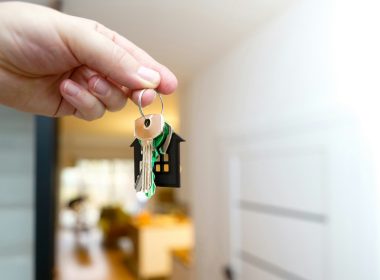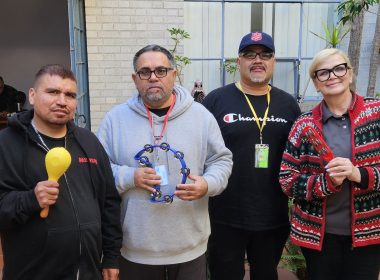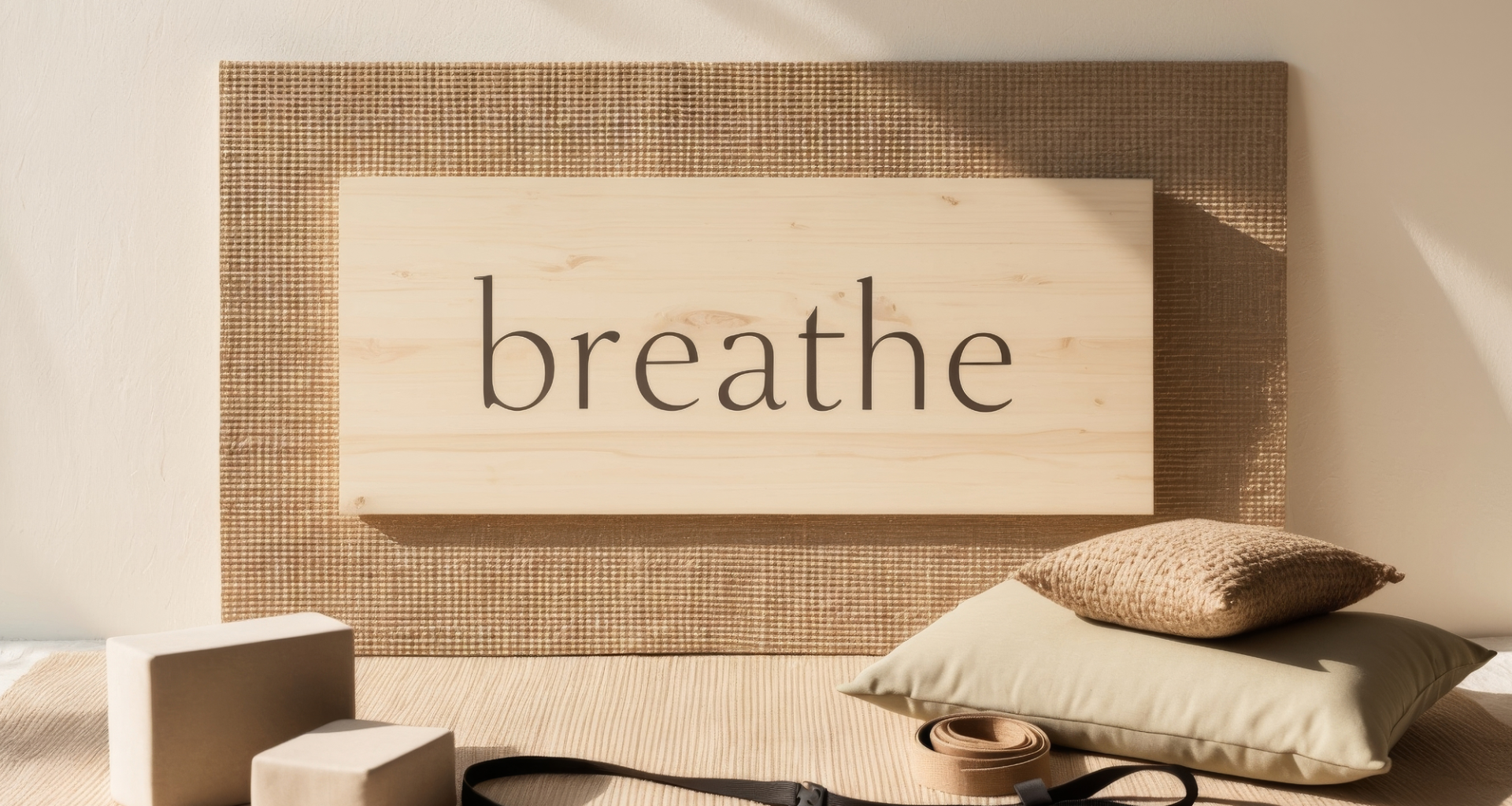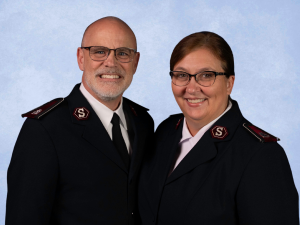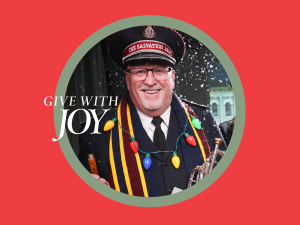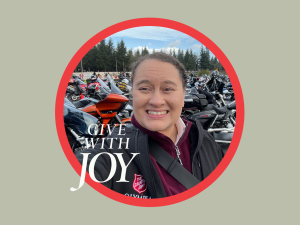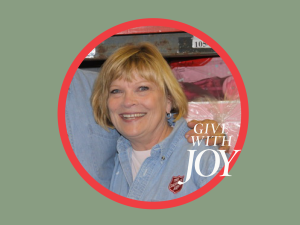Today’s conversation feels like settling into a comfortable chair with a warm cup of coffee and a wise friend who has permission to give you exactly what your soul has been craving: an invitation to exhale.
This conversation is part of our special “Slowing Down” series here on The Do Gooders Podcast. As summer winds down and we feel that familiar pull toward fall’s packed schedules, we’re exploring a different idea: that slowing down isn’t about doing less good in the world, but about doing good in a way that’s sustainable, joyful and rooted in the rhythms God designed for human flourishing. Whether you’re a ministry leader, parent or simply someone who knows you need to slow down but doesn’t know how to start, this series will challenge the cultural lie that our worth is measured by our productivity and invite you into what Jesus calls “unforced rhythms of grace.”
Today, Jodi Grubbs, author of “Live Slowly: A Gentle Invitation to Exhale,” brings a perspective that’s both unique and deeply needed. Jodi grew up on the island of Bonaire in the Caribbean, where “island time” wasn’t just a vacation concept—it was a way of life. But like so many of us, when she moved to the States, she got swept up in the so-called “hustle culture,” trading the gentle rhythms of her childhood for the endless rush and exhaustion that feels so normal in our society.
Until, that is, Jodi realized God was calling her back to the “island time” of her past—not geographically, but spiritually and practically. Now living outside Raleigh, North Carolina, she’s learned to create what she calls an “island in the city,” and she’s passionate about helping others make that same shift.
Jodi hosts the “Our Island in the City” podcast and describes herself as a “slow living guide”—someone who comes alongside those longing for a more sustainable pace. Her book offers 18 “slow living shifts”—not more tasks to add to your list, but gentle mindset changes that help you reclaim the rhythm God intended for your life.
If you’ve been feeling like you’re swimming against the current, exhausted from trying to keep up, or if you experienced that forced pause during the pandemic and have struggled to up the pace, this conversation is for you. Whether you’re a ministry leader, a parent or simply someone who cares deeply about making the world better, Jodi will help you understand how slowing down can enhance rather than diminish your ability to serve and love well.
So take a breath—maybe even let your shoulders drop a little—and join us for this gentle invitation to discover what it means to live slowly.
Show highlights include:
- What “island time” taught Jodi about community and presence
- How health struggles and grief became turning points toward slow living
- The difference between tasks and slow living shifts
- Why capacity changes by season—and how to honor yours
- How slowing down enhances, not diminishes, our ability to serve others
- Practical ways to create “white space” in your days for God’s interruptions
- A first gentle step toward living slowly
Listen and subscribe to the Do Gooders Podcast now. Below is a transcript of the episode, edited for readability. For more information on the people and ideas in the episode, see the links at the bottom of this post.
* * *
Christin Thieme: Jodi, you grew up on an island in the Caribbean. Can you tell us a little bit about what island time felt like as a child?
Jodi Grubbs: Yes, Christin, you’re right. I lived on Bonaire, which is near Aruba in the Netherlands Antilles, the southern part of the Caribbean. So island time was all I knew since I was born there and didn’t leave until I was 16. But it’s really just this rhythm of life where the island people, they’re so friendly and kind and not really in a hurry. And so it starts… You just see it everywhere. So for instance, my dad would come home for lunch. It’d be a two-hour lunch break. The banks would all close down for siesta time.
Christin Thieme: Wow.
Jodi Grubbs: If you were on the road and a car was in front of you and stop to talk to another car, you would just wait if there wasn’t a nice way to pass. You wouldn’t honk. And so it was just a gentler rhythm of moving through your day. A lot of community and food and conversation. Yeah.
Christin Thieme: Sounds nice. And then I imagine it was a bit of a shock when you moved away from the island.
Jodi Grubbs: Oh my gosh. Yes. It was culture shock for me, because I would only come to the U.S. every three to four years, and so it just felt really busy to me and loud. There were some exciting things, but also the pace seemed very different for me as a child. Yep.
Christin Thieme: Yes. I imagine. It sounds lovely over on the island.
Jodi Grubbs: It was.
Christin Thieme: You mentioned in your book years later, a wake-up call from your doctor that became sort of a turning point for you. Can you share what that moment was like and how it led you into this idea of slower living again?
Jodi Grubbs: Absolutely. In my case, it was I had forgotten some of the gentle rhythms of the island pace, and so I was a mom to my daughter, Lily, and just running all over the place. So I’m volunteering at my church to taking her on all the fun things that you do with young kids. And my body was like, “Oh wait, this is just too much. You have no white space on your calendar.” And I started getting sick a lot. Every fall I would get bronchitis, pneumonia, things like that. And my doctor finally was like, “Jodi, you’ve got to slow down. Your body is telling you it can’t live like this and so you need to pay attention.” And so that was a real wake-up call for me to say, “Oh, I already know about this.” And my body was just saying, “Yeah, this is foreign. We’re not going to do this. We’re on island time.” So it took a lot of scaling back and then just realizing, “Oh, I can’t be all things to all people,” and keep up that pace really, Christin.
Christin Thieme: Right. You talked about the endless rush and exhaustion of hustle culture. What do you think makes that type of living so easy to fall into, especially for people who want to do good in the world? Like you were saying, you were volunteering. So what makes that so easy for us to fall into?
Jodi Grubbs: Yeah. I think the U.S. especially in our culture, we have a lot of striving. That’s sort of how we get our worth instead of maybe from God and a community and being with others, being present. I feel like people pleasing is a big one, at least for me. You want people to think well of you, you want to contribute. People might have the ideas like, “Oh, if you are home for a couple hours, that’s laziness.” Instead of it just being a time to refuel yourself and be in solitude for the things you have coming up in your day and your week.
Christin Thieme: Yeah, absolutely. I know you also read about experiencing loss and becoming a widow in your twenties. I’m so sorry for that. How did that grief teach you about the necessity of slowing down?
Jodi Grubbs: Yeah. So my first husband died as a result of road rage.
Christin Thieme: Oh my goodness.
Jodi Grubbs: And he was a passenger in a truck and he lived through a horrific accident on I-85 in Atlanta. But having everything come to a screeching halt, literally not just the accident, but then for the next two and a half years of our lives, it taught me just the need to slow down, to be present with people who you love and love you, to let community come alongside of you and help you. So it caused me to slow down. It caused others to slow down to help me. Yeah. And just really the gravity of us moving so fast through life that we miss a lot. We miss other people right in front of us. We just miss a lot when we hurry, and a lot of times it hurts us and it hurts others. Yeah.
Christin Thieme: Yeah, absolutely. So the circumstances of your life really forced you to slow down from every direction. And now you’ve offered us this book with 18 different slow living shifts, which you say are different from tasks or to-do lists. So can you explain that difference and maybe share one of those shifts so we have an idea of what you mean?
Jodi Grubbs: Sure. I like to refer to them as maybe more practices, so like soul care practices, but I call them slow living shifts. So we don’t want to just pivot so hard, right? You can’t just completely stop your life. Slowing down is a process and a shift is really doable. So one of my favorite ones probably is just understanding capacity if we can understand how we’re made. So some people have the capacity in this season of maybe a little scallop shell. They just have a tiny bit, but their friend might have half a coconut full, and someone else a big sand castle pale full. We go through seasons where we do have a lot to give and other seasons where we don’t. So knowing your capacity really helps you determine if you’re really being called to step in and do good right now, or if you need to scale back and the season is not right in your life. So that’s a huge one, and it takes just a little bit of intention, but it can help you not get burned out.
Christin Thieme: Great. Some practical things for us to look at. The subtitle of your book is A Gentle Invitation to Exhale. Why did that word exhale capture what you wanted to offer people in this book?
Jodi Grubbs: Yes. When my publisher came to me and said that, “This is really what we want, but it’s your words. This is what your book’s all about.” And I think so many of us are holding our breath and we don’t realize it. And so we’re just striving, we’re just hustling, we’re pushing, and we think it’s normal. We don’t even know that we’re doing that. And so this gentle invitation just to exhale, literally, as if you’re sitting on the beach and your whole body relaxes, take a breath and inhale is important, but exhale is just letting it go, letting it all lay down. So I think it’s really important to know that letting go is a huge part of slowing down. Yeah.
Christin Thieme: Yeah. I think a lot of people sometimes can feel guilty almost about slowing down. They think that it means they care less or that they’re doing less, but what’s your response to somebody who says that they just can’t slow down? They would feel so bad if they were to slow down and take that time.
Jodi Grubbs: Yeah. Well, my experience personally in just walking through this with a lot of people is if you don’t slow down, slowing down will be chosen for you. And either through health issues or just your own capacity being burnt out. We’re not made to go this fast all the time. Our bodies aren’t made for that. So I feel like the whole idea of feeling guilty needs to be shifted, tweaked just a little bit. If you need to plug in your phone, you can’t expect that phone to give everything if it’s almost at 10%. You need to recharge it and then it can do its work again, right? As with everything.
Jodi Grubbs: And so I feel like it’s really important just to say, “Well, let’s not look at it through the lens of guilt.” We’re human. We’re embodied creatures that we need rest for all the things that we are called to do, especially in this society, in this culture. We don’t have a lot of downtime built into our day. And so just shifting our thoughts on that, it really gives us spaciousness and a much broader way to be in the world and with others and do good. Yeah.
Christin Thieme: On the other side of that, perhaps there’s some people who say, “Well, I don’t have the financial freedom to slow down. My circumstances are incredibly demanding and I don’t get to embrace elements of slow living.” What would be your response to that?
Jodi Grubbs: Yeah. So I have been asked that question before, and my response is I look to others who have done it before me. So an example would be a single mom who has to work a ton of hours and she has three little kids. She’s already learned how to live slower because she has to pace herself. She is the breadwinner, she is the parent, she is the worker. So she knows she has to say no. She can’t just say, “Sure, I’ll help a neighbor and stay up till 11 and do all these things.” She just can’t. So her boundaries are a lot tighter. She’s not afraid of letting people down. She knows her limits because she’s got to start again the next day.
She’s got to have her sleep so that she can keep going to work to put food on the table. So it’s interesting when we say, “Oh, when you look at it from that perspective, there’s people who can’t do it any other way, and they’ve already taught themselves how to slow down to have that quiet.” Maybe she has 10 minutes on her balcony, and that’s enough just to have solitude and recharge for her to jump in and take care of her kids till bedtime, but she’s probably sacrificing a lot. Yeah.
Christin Thieme: We all know how harrowing bedtime can be. So you need that 10 minutes.
Jodi Grubbs: Yeah.
Christin Thieme: You mentioned pace, and in your book you write about learning to keep in step with the pace God has given to you. You talked about capacity, but how do we discern what our God-given pace actually is?
Jodi Grubbs: Yeah. So all of us have a different pace. I have some friends who are extroverts, type A, and they’re just go, go, go. But what I’ve noticed is when they overexert themselves, they end up letting others down. So if they say yes to three or four different people, half of those people feel a little bit gypped. Like they didn’t get all of them. They’re just running here kind of like a chicken with their head cut off. And so learning the pace of just walking with God and walking with others, I think if we pay attention to how our body reacts and what we need, and then pay attention to others and what they need, being present just requires us to slow down. We can’t truly see each other if we don’t stop for a second and look. Yeah.
Christin Thieme: One of the, I mean, I don’t know if silver lining is the right word for it, but one of the interesting things about the pandemic, the pandemic pause, that everybody was forced to slow down and everyone was baking sourdough bread and at home more, and all of a sudden you’re doing these slower living type of things that you maybe didn’t do before. How did that affect your thinking on this topic? That time where we really all were kind of forced to slow down?
Jodi Grubbs: It was amazing because before then I thought, “Oh, I don’t know if people will really understand this idea of slower living.” Right? We were all just gung-ho, just move forward. And that caused so many people to have to stop that I had so many women afterwards tell me, “Gosh, I kind of liked it. I don’t want to go back to the way I used to live. I don’t want to go back to the hustle. I’m realizing I don’t have to say yes to all these school meetings and church things, extra things that I thought I did, the expectations people had of me, the expectations I had of just being in society. I had no idea we could actually function without doing all of that.” And so it instead became this welcome relief that the reality is we don’t have to push so hard to have community, to have connection and to have peace. Yeah.
Christin Thieme: What does your own slow living rhythm look like now? How do you embrace the idea of the island rhythm in suburban American context?
Jodi Grubbs: Yeah. Well, yeah. It comes in different seasons. Some seasons I’m needing to work a little harder than other seasons, maybe to pay some bills, and then other times I’ve got some quiet. And so small things are really important. I am out on my patio a lot just looking at nature, listening to the birds, having quiet solitude with God. That’s a huge one. Another one is just awakening to the beauty around us. If you just go for a walk and you really have eyes open, not saying you can’t be listening to music or something like that, but just really be present with nature, present with people. I try to be just fully there if I’m having dinner or coffee with a friend just so they feel fully seen. So those are the three main ways that I try and practice that just as everyday rhythms without really saying, “Oh, I’m slow living.”
Christin Thieme: Right, right.
Jodi Grubbs: Living slowly. Yeah.
Christin Thieme: You’ve mentioned acknowledging that you don’t have to say yes to everything, and that connection and community are so important. So how do you balance that? What’s your approach to being connected, but not always feeling the need to say yes?
Jodi Grubbs: Yeah, so a lot of it’s your personal values. What is really important to you? And it might be being with people more. It might be doing volunteer work. It might be quiet time at home, cooking, cleaning. Just so whatever your value is is sort of the compass of what you use to decide that. And then just asking God, “Where do you want me right now? Is there someone you want me to cross paths with right now?” And God will bring people to help you and for you to help. Just more of an open hands mentality, not striving and controlling your schedule. So probably the word white space comes to mind. Having intentional white space on my calendar allows for times when God has something I didn’t plan on happen and just being available for that. It might mean a nap. It might mean helping a neighbor. It’s so varied. Yeah.
Christin Thieme: Yeah, definitely. So for those listening who are feeling drawn to this idea, but maybe don’t know where to start, what’s your first gentle step for them?
Jodi Grubbs: Yeah, it would probably go back to some of these shifts. So I would say the first thing really is just finding a few soul care practices that help you slow down, which can’t do it all on our own. So even taking some scripture and just slowly reading through it helps. Matthew 11:28-30 is a great passage to do that. And then also just lingering with intention. That’s whether you are with your children, with your coworkers, at church in your lobby, just wherever you are, lingering and savoring time with people and being present. Jesus really showed us that he walked alongside of people. He didn’t just rush places. In fact, people got mad because he missed certain opportunities. He was late to certain things, and that was all part of his ministry and what he was doing. But he was really present where he was at the moment. And so I would say just start with little things like that.
Additional resources:
- If you are one of the hopefuls, get on the list for the Do Good Digest, our free 3-minute weekly email newsletter used by more than 20,000 hopefuls like you for a quick pick-me-up in a busy day.
- If you are enjoying this show and want to support it, leave a rating and review wherever you listen to help new listeners hit play for the first time with more confidence.
- If you want to help The Salvation Army serve more than 27 million Americans in need each year, give today. Your gift of money, goods or time helps The Salvation Army do good all year in your community.
Listen and subscribe to the Do Gooders Podcast now.



